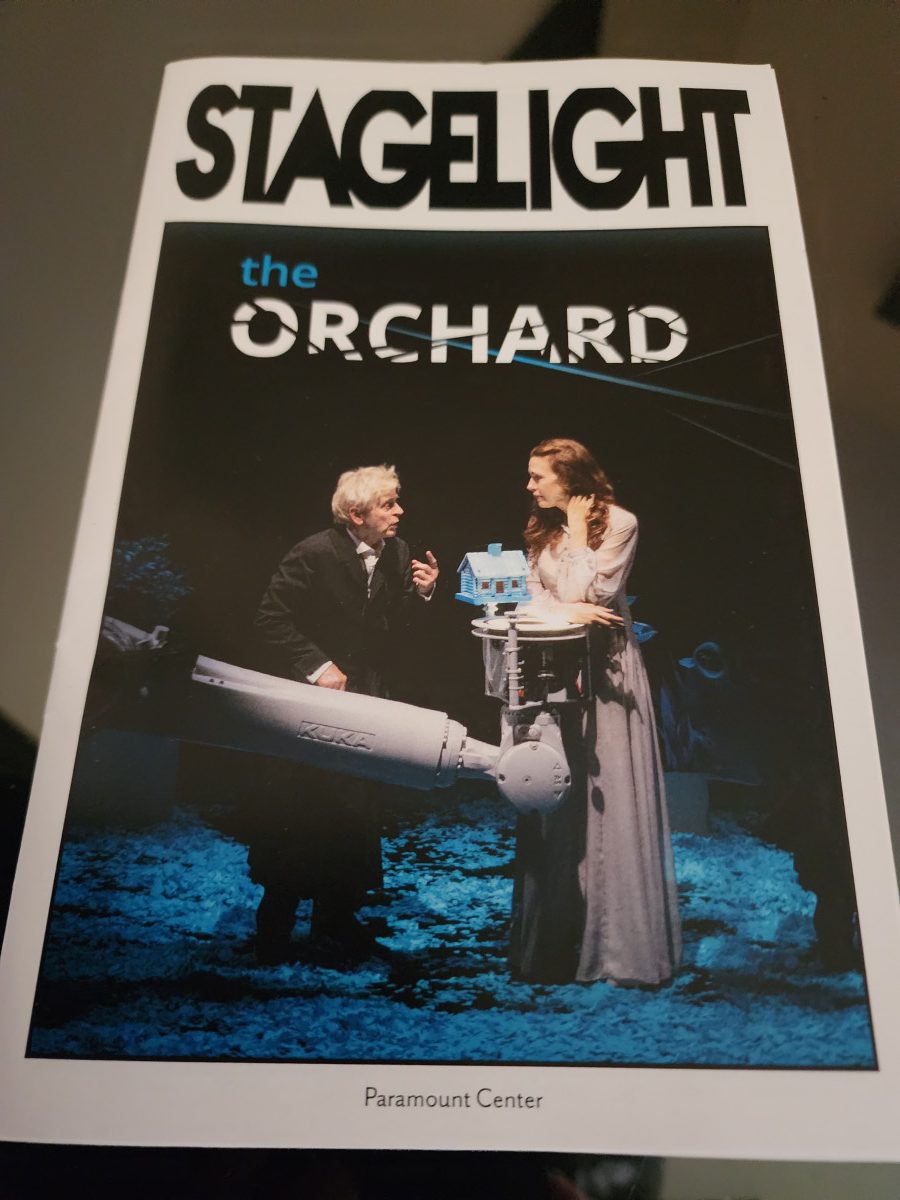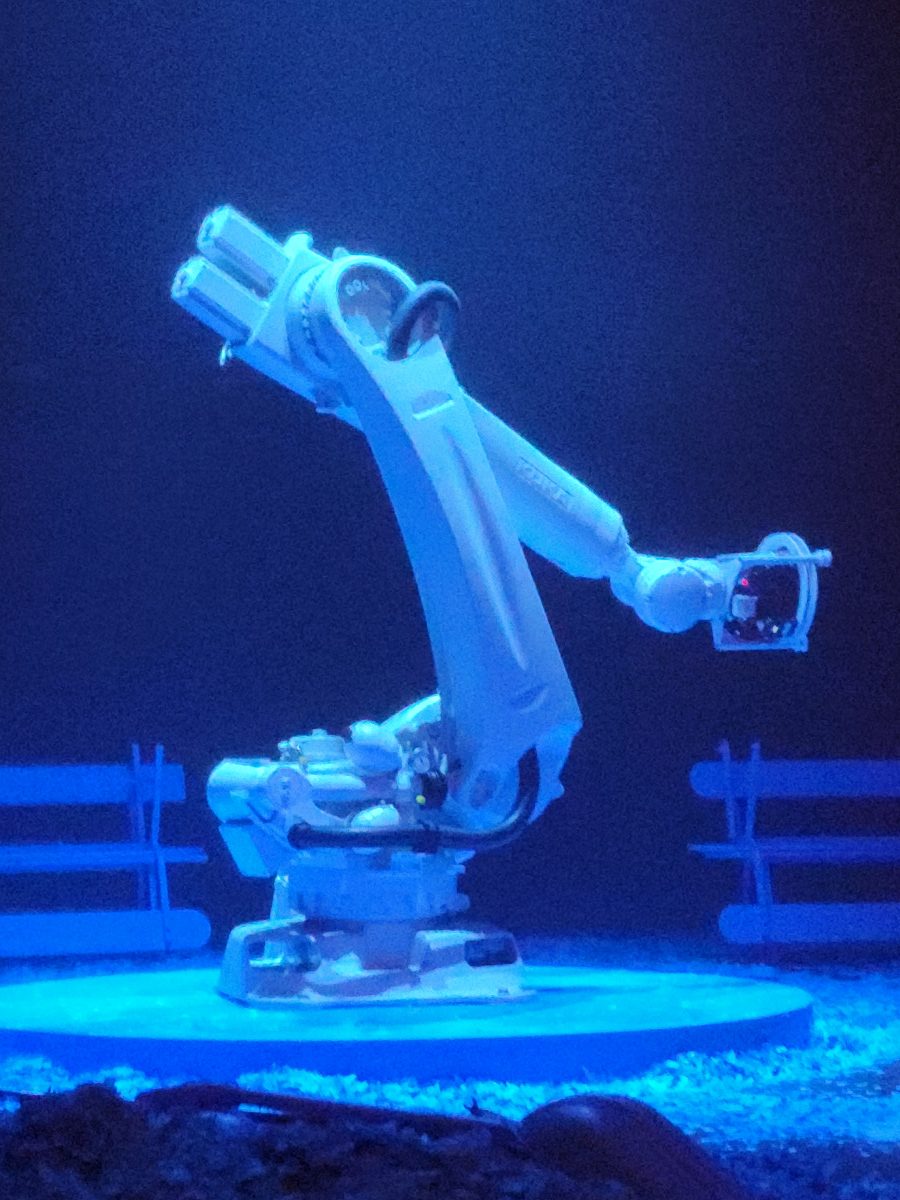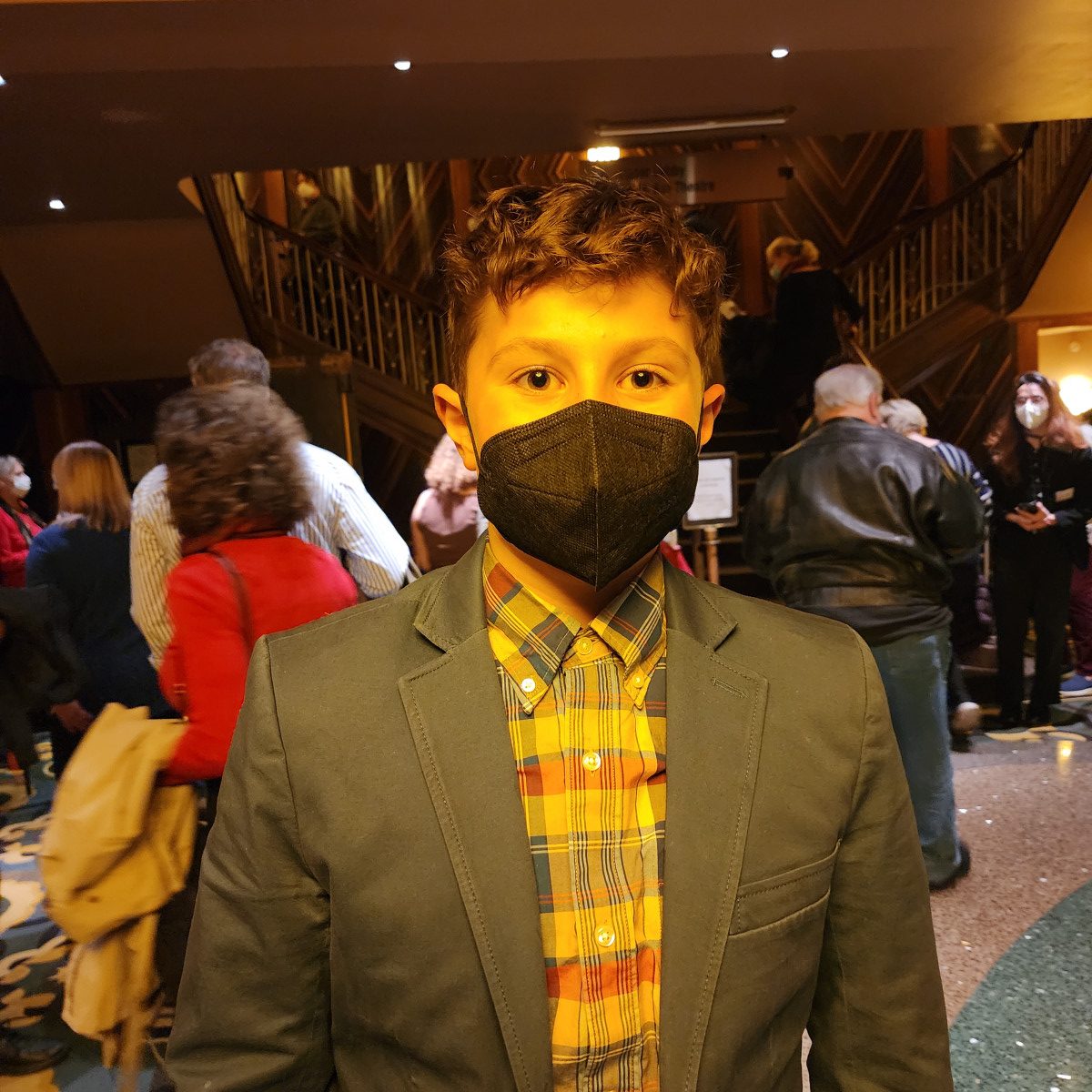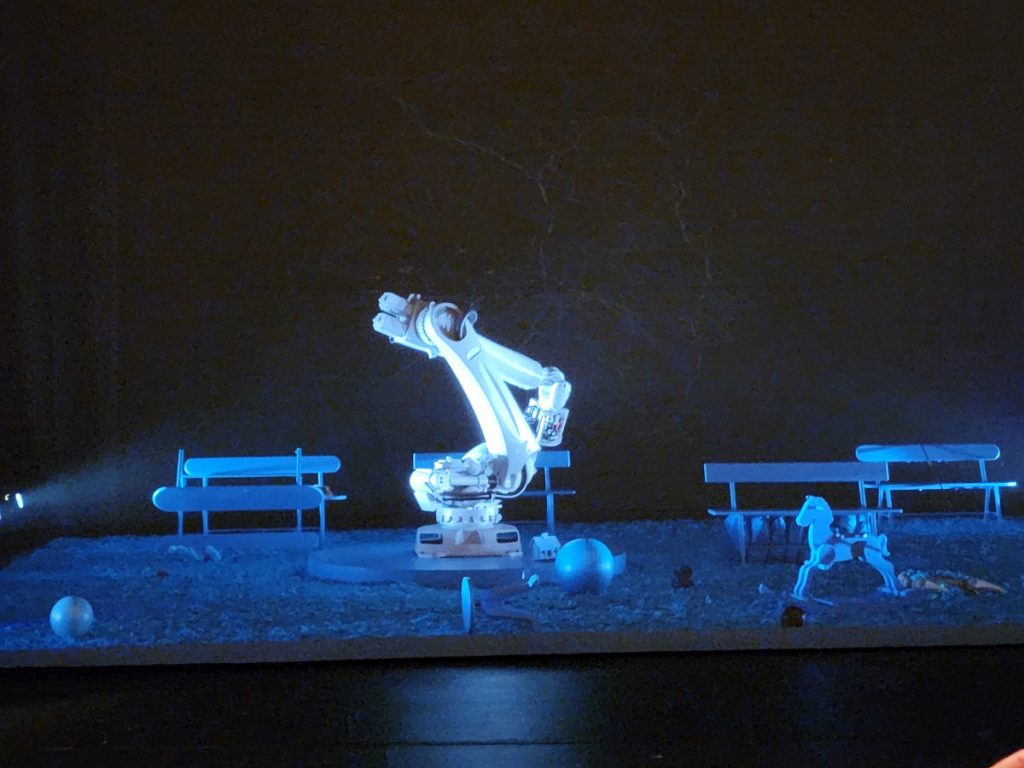Greatness has descended on Emerson Paramount Center, where legend Mikhail Baryshnikov and actress Jessica Hecht are performing in “The Orchard,” an adaptation of Anton Chekhov’s “The Cherry Orchard” now through November 13th.
I say greatness for two reasons. The first is that I have always been a huge fan of Baryshnikov. This is because I am part Latvian. Growing up, my mother made me aware that Baryshnikov was born in Latvia. He was the only famous Latvian I knew, so he became a role model of my heritage. And although I know Baryshnikov’s parents were Russian, he was born in Latvia and, in 2016, became a Latvian citizen, which he had requested based on his close ties to the country. So, needless to say, seeing him live on stage was a huge thrill.
The second aspect of greatness appearing on the Paramount stage is the spirit of Russian playwright Anton Chekhov who, by many accounts, is one of the greatest writers of all time, at the very least for the modern ideals he brought to the stage and his short stories. “The Cherry Orchard,” his final play, is considered his best. When it premiered just over 120 years ago, Chekhov classified it as a comedy, while the director called it a tragedy. And, while perhaps it is both, the tone of the adaptation I saw on November 4th was far more tragic and perhaps more impactful.
In both the original and the adaptation, the central theme is social change when after a series of mostly self-taken missteps, a once-wealthy family is forced to sell their famed cherry orchard. The purchaser is an affluent merchant whose family had served as serfs on the property for generations. (Serfdom was outlawed in Russia in 1861). In my opinion, while cutting down the beautiful orchard was tragic, the social change and progress were beautiful, and the loss of the orchard was necessary.
While all these events still transpire in “The Orchard,” the change seems more mournful. Industry, war, and social injustice now dictate how the orchard’s landscape must change. And then, there’s the gigantic robotic arm, which isn’t necessarily tragic but changes the show’s atmosphere with its view of events.
My date for the show was my 13-year-old son, who was enchanted by the simple blue set design and tech aspects of the show. Images are cast upon a transparent screen, sometimes as memories and sometimes as the robot’s view of the events over that fateful summer.
On the ride home, we had lengthy discussions about who was at fault. Did the merchant do the right thing, and why didn’t the family take his advice to avoid the auction? But, mostly, we talked about what purpose the robotic arm served and symbolized. Perhaps it’s his generation, but he thought it represented the change the internet, media, and social media have had on our lives and how we see things. Everything plays out on a broader stage, and it’s not always shot from the most authentic perspective.
What I took away from the show was that the themes are still relevant in this adaptation, even almost a century and a quarter later. The strings that connect our lives and society break all the time. It’s how we manage that change that matters the most.
If you have a pensive teen who appreciates theater and post-discussions, I would highly recommend bringing them. Purchase your tickets here. You can also watch it live and online by purchasing tickets here. The show runs through November 13, 2022.
One note, Emerson is still mandating proof of vaccination and masks.


More on The Haute Life…
-
Touring Nantucket by Sea with Nantucket Mermaids

Nantucket Mermaids Yacht Charters
-
Fiji Ceviche Recipe from Nantucket Mermaids

Ceviche Recipe from Nantucket Mermaids
-
Q&A with Leah Collins: The Nantucket Mermaid Leading You to Unforgettable Yachting Adventures

Nantucket Mermaids Step aboard for an exclusive Q&A with Leah Collins, the mastermind steering Nantucket Mermaid Yacht Charters (NMYC), your ultimate gateway to the seas off Nantucket. If you’re spending time on this island paradise, a portion of it must surely be spent on the water. Leah and her team specialize in transforming maritime fantasies into…



